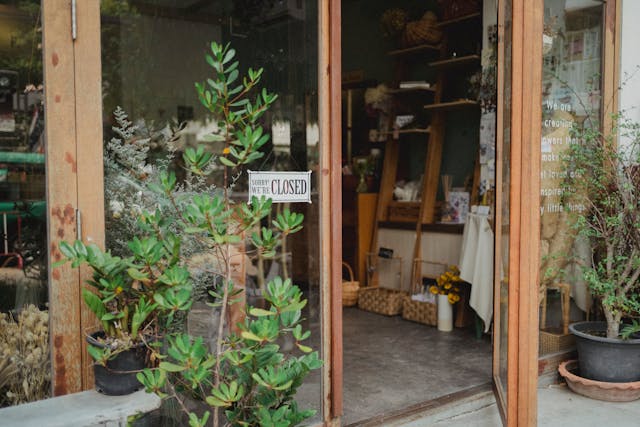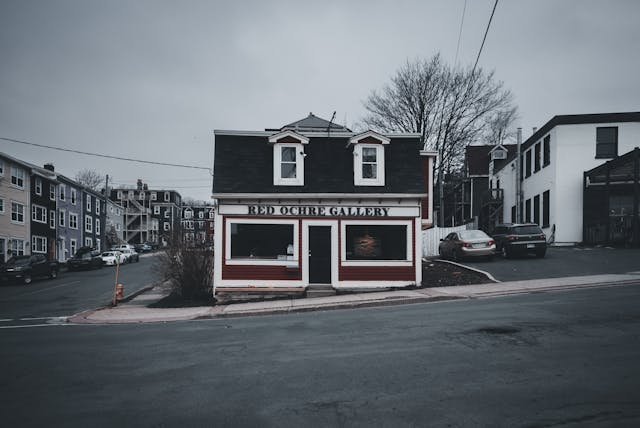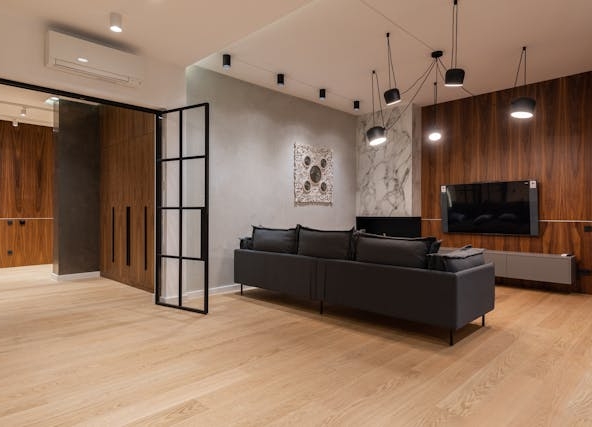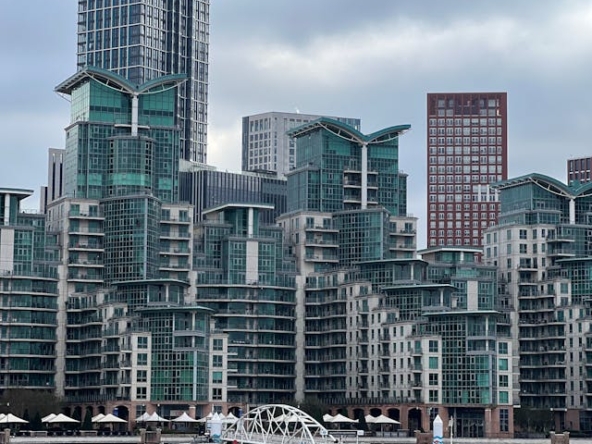Retail property investments in Winnipeg offer a lucrative opportunity for real estate investors looking to diversify their portfolios. With the city’s growing population and evolving consumer trends, the retail sector presents promising prospects for those willing to navigate its unique challenges and opportunities.
Key Takeaways
- Winnipeg’s retail property market shows resilience and potential for growth
- Location and demographics are crucial factors in successful retail investments
- Mixed-use developments are gaining popularity in Winnipeg’s retail landscape
- Understanding local zoning laws and regulations is essential for investors
- E-commerce integration is reshaping the future of retail properties
- Sustainability and energy efficiency are becoming increasingly important in retail real estate

The Winnipeg Retail Property Landscape
Winnipeg’s retail property market has been steadily evolving over the past decade. As the capital city of Manitoba, it serves as a hub for commerce and retail activity in the province. The city’s diverse neighborhoods, from the bustling downtown core to the expanding suburban areas, offer a variety of retail investment opportunities.
Understanding Winnipeg’s Retail Zones
Winnipeg’s retail landscape is divided into several distinct zones, each with its own characteristics and investment potential. The downtown area, including Portage and Main, remains a key commercial district, while areas like Osborne Village and the Exchange District offer unique, boutique retail experiences.
Suburban retail hubs like Polo Park and St. Vital Centre continue to attract shoppers and investors alike. These areas have seen significant development in recent years, with new mixed-use projects combining retail, residential, and office spaces.
The Impact of Local Demographics
Understanding the local demographics is crucial for successful retail property investments in Winnipeg. The city’s population has been growing steadily, with an influx of immigrants and young professionals contributing to changing consumer preferences.
Areas with a high concentration of students, such as those near the University of Manitoba and the University of Winnipeg, present opportunities for retail properties catering to this demographic. Similarly, neighborhoods with a large proportion of families may be better suited for family-oriented retail concepts.

Identifying Prime Retail Investment Opportunities
When looking for retail property investments in Winnipeg, it’s essential to consider several factors that can influence the success of your investment.
Location, Location, Location
As with any real estate investment, location is paramount in retail property investments. In Winnipeg, areas with high foot traffic, good visibility, and easy accessibility tend to perform well. Consider properties near major transit hubs, popular intersections, or within established shopping districts.
Assessing Property Types
Winnipeg’s retail property market offers various investment options, including:
- Strip malls and power centers
- Downtown storefronts
- Mixed-use developments
- Standalone retail buildings
Each property type comes with its own set of advantages and challenges. For example, strip malls in suburban areas may offer stable tenancies and lower maintenance costs, while downtown storefronts might provide higher rental yields but require more active management.
Analyzing Tenant Mix and Lease Structures
A successful retail property investment often hinges on the quality and diversity of its tenants. In Winnipeg, properties with a mix of national chains and local businesses tend to perform well, as they offer stability and local appeal.
When evaluating potential investments, pay close attention to the lease structures in place. Long-term leases with established tenants can provide steady income, while shorter leases may offer opportunities for rent increases in growing areas.

Navigating Winnipeg’s Retail Property Regulations
Investing in retail properties in Winnipeg requires a thorough understanding of local regulations and zoning laws. These can significantly impact your investment’s potential and future development opportunities.
Zoning Considerations
Winnipeg’s zoning bylaws dictate how properties can be used and developed. Retail properties typically fall under commercial zoning categories, but it’s essential to verify the specific zoning of any property you’re considering. Some areas may have restrictions on the types of businesses allowed or limitations on property modifications.
Permits and Licenses
Retail property investors in Winnipeg should be familiar with the various permits and licenses required for different types of retail operations. This knowledge can help you assess potential tenants and understand any limitations on the property’s use.
Environmental Regulations
Winnipeg, like many Canadian cities, has been placing increased emphasis on environmental sustainability. Retail properties may need to comply with energy efficiency standards or waste management regulations. Understanding these requirements can help you plan for necessary upgrades and avoid potential compliance issues.
Financing Retail Property Investments in Winnipeg
Securing financing for retail property investments in Winnipeg requires careful planning and consideration of various options.
Traditional Lending Options
Local banks and credit unions in Winnipeg often offer commercial mortgages for retail property investments. These loans typically require a significant down payment, usually around 25-35% of the property value. Interest rates and terms can vary, so it’s worth shopping around to find the best deal.
Alternative Financing Methods
For investors looking beyond traditional bank loans, there are several alternative financing options to consider:
- Private lenders specializing in commercial real estate
- Real estate investment trusts (REITs) focused on retail properties
- Crowdfunding platforms for real estate investments
- Joint ventures with other investors or developers
Each of these options comes with its own set of advantages and risks, so it’s important to carefully evaluate which method aligns best with your investment goals and risk tolerance.
The Rise of Mixed-Use Developments in Winnipeg
Mixed-use developments have been gaining popularity in Winnipeg’s retail property market. These projects combine retail spaces with residential units, offices, or other commercial uses, creating vibrant, multi-functional communities.
Benefits of Mixed-Use Investments
Investing in mixed-use developments can offer several advantages:
- Diversified income streams from different property types
- Increased foot traffic for retail tenants from on-site residents and workers
- Potential for higher overall property values due to the synergy between uses
- Alignment with Winnipeg’s urban planning goals, potentially leading to easier approval processes
Challenges of Mixed-Use Properties
While mixed-use developments offer exciting opportunities, they also come with unique challenges:
- More complex management requirements
- Potential conflicts between different user groups (e.g., noise complaints from residents)
- Higher initial development costs
- More intricate zoning and permitting processes
Adapting to E-Commerce Trends in Winnipeg’s Retail Landscape
The growth of e-commerce has significantly impacted the retail property market in Winnipeg and beyond. Successful retail property investments now need to consider how to integrate online and offline retail experiences.
The Role of Physical Stores in an Online World
Despite the rise of online shopping, physical retail spaces in Winnipeg continue to play a crucial role. Many retailers are adopting an omnichannel approach, using their physical stores as showrooms, click-and-collect points, or experiential spaces to complement their online presence.
Adapting Retail Spaces for E-Commerce Integration
Investors in Winnipeg’s retail properties should consider how to adapt their spaces to support e-commerce operations:
- Incorporating areas for order pickup and returns
- Providing flexible spaces that can serve as both showrooms and fulfillment centers
- Ensuring robust internet connectivity and technological infrastructure
- Creating engaging in-store experiences that can’t be replicated online

Sustainability and Energy Efficiency in Winnipeg Retail Properties
With increasing awareness of environmental issues, sustainability, and energy efficiency have become important considerations in retail property investments in Winnipeg.
Green Building Practices
Implementing green building practices in retail properties can lead to long-term cost savings and increased property values. Some key areas to focus on include:
- Energy-efficient lighting and HVAC systems
- Improved insulation and weatherproofing
- Water conservation measures
- Use of sustainable and locally sourced materials
Government Incentives for Sustainable Retail Properties
The Manitoba government offers various incentives for energy-efficient upgrades in commercial properties. These programs can help offset the costs of implementing sustainable practices in your retail property investments.
Managing and Maintaining Retail Properties in Winnipeg
Effective management and maintenance are crucial for the long-term success of retail property investments in Winnipeg.
Property Management Considerations
Deciding whether to self-manage or hire a professional property management company is an important consideration for retail property investors. Factors to consider include:
- Your level of experience in retail property management
- The size and complexity of your property portfolio
- Your availability to handle day-to-day management tasks
- The potential cost savings vs. the value of professional expertise
Maintenance and Upgrades
Regular maintenance and timely upgrades are essential for keeping your retail property attractive to tenants and shoppers. This includes:
- Routine inspections and preventative maintenance
- Prompt repairs and addressing tenant concerns
- Periodic renovations to keep the property modern and competitive
- Upgrades to meet changing safety and accessibility standards

The Future of Retail Property Investments in Winnipeg
As Winnipeg continues to grow and evolve, the retail property market is likely to see several trends that will shape investment opportunities in the coming years.
Emerging Neighbourhoods
Keep an eye on up-and-coming neighborhoods in Winnipeg that may offer opportunities for retail property investments. Areas undergoing revitalization or experiencing population growth could present attractive investment prospects.
Technology Integration
The integration of technology in retail spaces is likely to accelerate. This may include:
- Smart building systems for energy management
- Enhanced security systems
- Interactive displays and augmented reality experiences
- Data analytics tools for understanding customer behavior
Adapting to Changing Consumer Preferences
Successful retail property investments in Winnipeg will need to adapt to evolving consumer preferences. This may involve:
- Creating more experiential retail environments
- Incorporating health and wellness-focused amenities
- Providing spaces for pop-up stores and temporary retail concepts
- Integrating local and artisanal products alongside national brands
Sources
- Location: One effective strategy for retail property investments is to focus on prime locations. According to a report by Cushman & Wakefield, prime retail locations saw an average rental growth of 3.3% in 2019, while secondary locations only saw a growth of 1.5% (Source).
- Demographics: Understanding the demographics of the area is another important strategy. A study by ICSC and Goldman Sachs found that millennials are the largest demographic group shopping in malls, accounting for 31% of mall traffic (Source).
- Online and Offline Integration: Retail properties that offer a seamless integration of online and offline shopping experiences are becoming increasingly popular. A report by JLL found that retailers that offer both online and offline options saw a 29% increase in sales (Source).
- Investment in Technology: Technology investments can also lead to effective retail property investments. A report by CBRE found that retailers that invest in technology, such as mobile apps and self-checkout kiosks, saw a 15% increase in sales (Source).
Retail property investments in Winnipeg offer a range of opportunities for savvy investors willing to navigate the unique challenges and trends of the local market.
By understanding the city’s retail landscape, staying attuned to demographic shifts, and adapting to emerging trends like e-commerce integration and sustainability, investors can position themselves for success in this dynamic sector of Winnipeg’s real estate market.
| Factor | Impact on Retail Property Investments in Winnipeg |
|---|---|
| Population Growth | Increased demand for retail spaces and services |
| E-commerce Integration | Need for adaptable, tech-friendly retail spaces |
| Sustainability Trends | Higher initial costs, but long-term savings and increased property value |
| Mixed-Use Developments | Diversified income streams and potential for higher overall returns |
| Local Economic Factors | Influence on consumer spending and retail performance |
| Neighbourhood | Retail Property Characteristics | Investment Potential |
|---|---|---|
| Downtown Core | High foot traffic, tourist appeal | High returns, but higher management costs |
| Osborne Village | Boutique retail, local businesses | Steady income, popular among young professionals |
| St. Vital | Large shopping centers, suburban appeal | Stable tenancies, lower maintenance costs |
| Exchange District | Historic buildings, arts and culture focus | Unique properties, potential for revitalization |
| Transcona | Growing suburban area, family-oriented | Emerging opportunities, potential for value appreciation |



